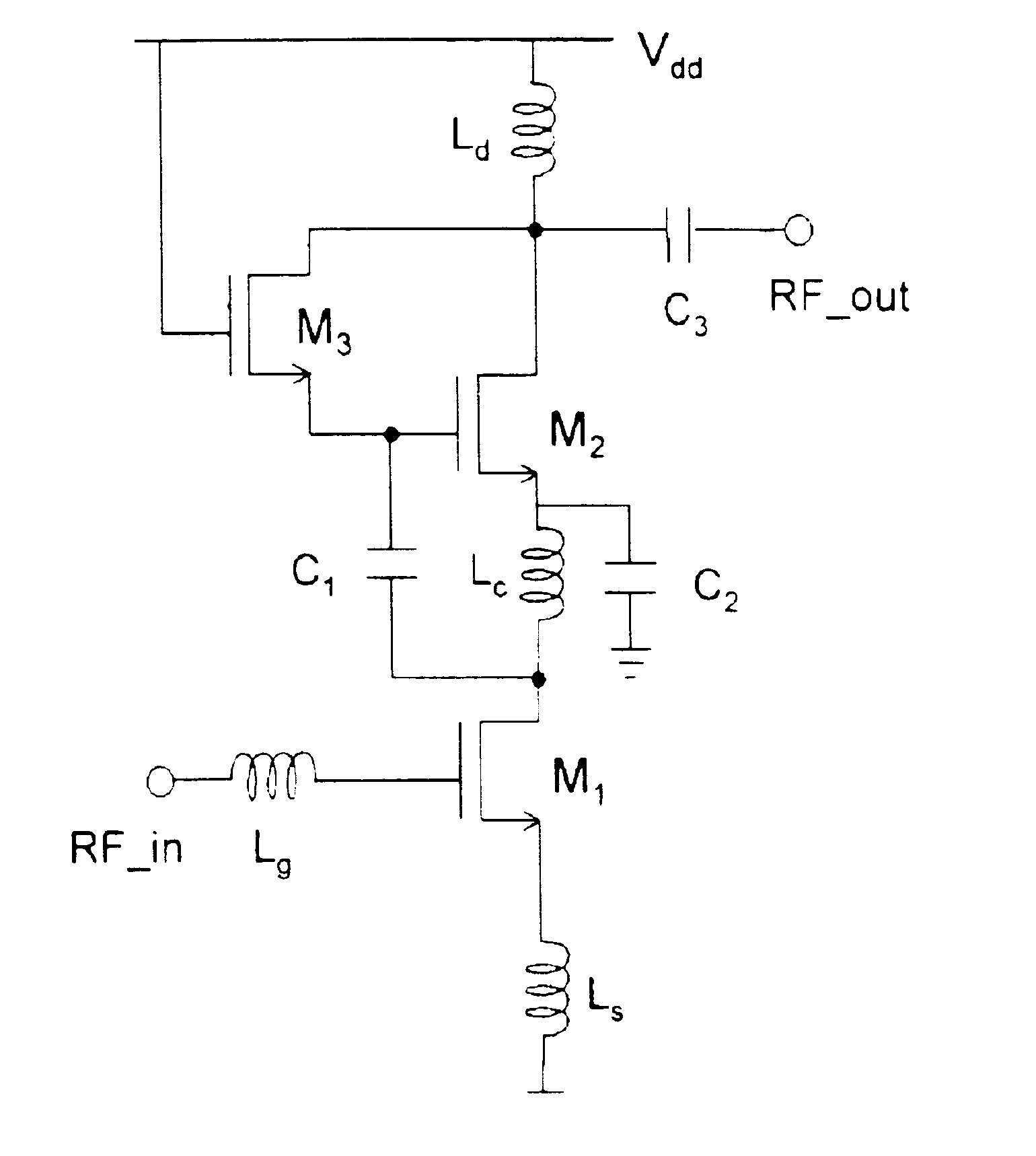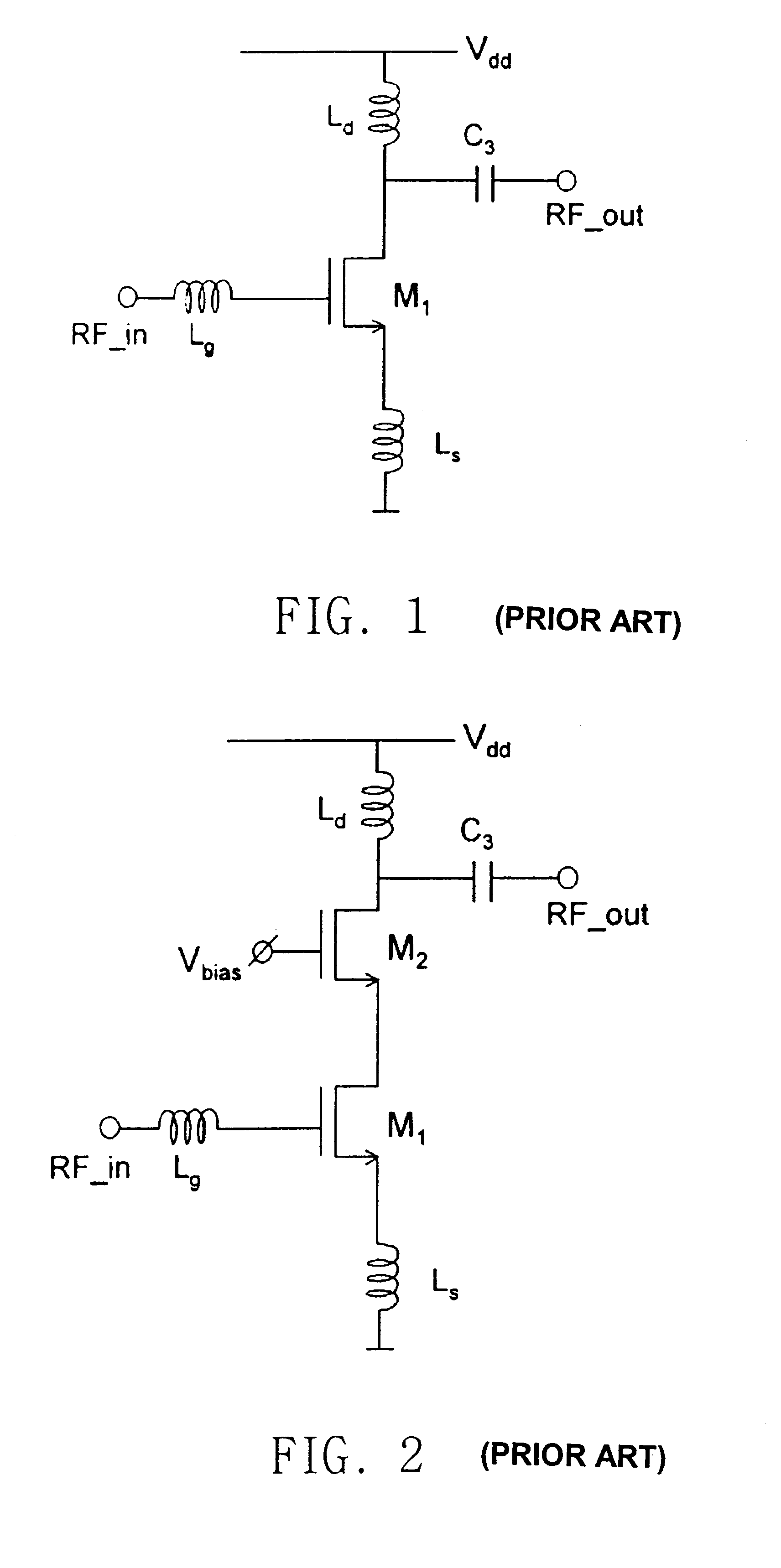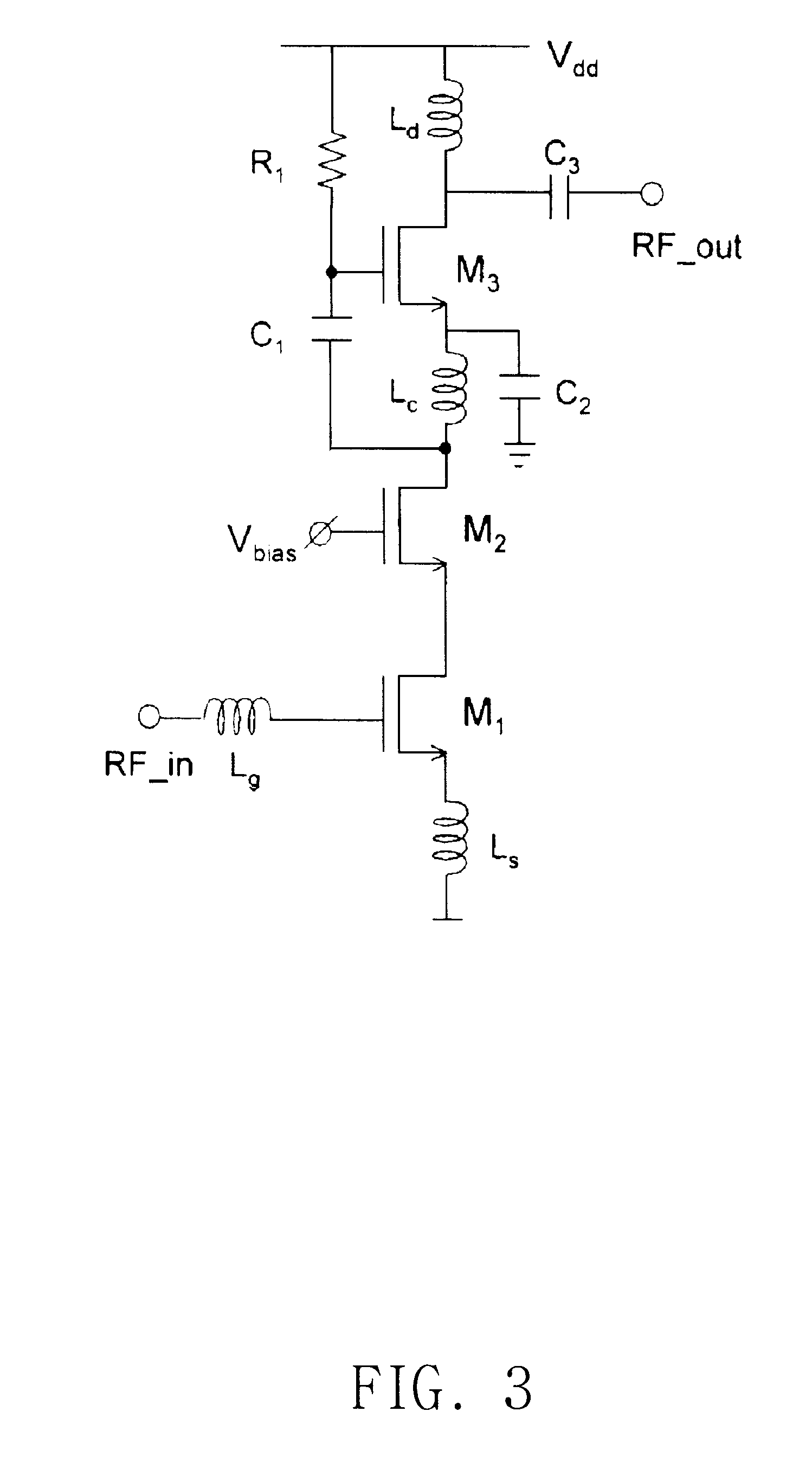Low power low noise amplifier
a low-noise amplifier and low-power technology, applied in the direction of amplifier combinations, low-noise amplifiers, gain control, etc., can solve the problems of difficult to obtain high-power linearity and power gain in low-power rf receivers, and achieve the effect of improving linearity and low power consumption
- Summary
- Abstract
- Description
- Claims
- Application Information
AI Technical Summary
Benefits of technology
Problems solved by technology
Method used
Image
Examples
first embodiment
FIG. 3 is the present invention.
Herein, inductors L.sub.g and L.sub.s are used for matching input impedance, and inductor L.sub.d and capacitor C.sub.3 are used for matching output impedance.
Herein, the capacitor C.sub.2 is a bypass capacitor. So, source of common source component transistor M.sub.3 is bypassed by the C.sub.2.
In this structure, the signal amplified as much the gain by cascode structure composed of transistors M.sub.1 and M.sub.2 is amplified through coupling to the gate of common source transistor M.sub.3 by capacitor C.sub.1.
The entire gain is obtained by multiplying of the gain of cascode amplifier and common source amplifier. Therefore, the high power gain can be obtained compared to the conventional common source amplifier or cascode amplifier.
Herein, transistors M.sub.1 and M.sub.2 are operated as cascode amplifier, and transistor M.sub.3 is used as common source amplifier, and there is no increase of the bias current because the bias current is shared. Therefo...
second embodiment
FIG. 4 is the present invention.
In this structure, the signal amplified by common source component transistor M.sub.1 is coupled to gate of transistor M.sub.2 by capacitor C.sub.1 and is output after being amplified as much as the gain by the cascode structure composed of the said transistors M.sub.1 and M.sub.2.
Herein, transistor M.sub.1 is operated as a common source amplifier, and transistors M.sub.2 and M.sub.3 are operated as a cascode amplifier, and because the bias current is shared, there is no increase of the bias current. In this case, source of transistor M.sub.2 is bypassed by capacitor C.sub.2.
The entire gain is obtained by multiplying of the gain of cascode amplifier and common source amplifier. Therefore, the high power gain can be obtained compared to the conventional common source amplifier or cascode amplifier.
third embodiment
FIG. 5 is the present invention.
In this structure, the signal amplified by transistor M.sub.1 is coupled by N-type transistors M.sub.2 and P-type transistor M.sub.3 and then is output.
This structure gives higher power gain by sharing the bias current compared to the conventional structure and compensates linearity got worse in the high power gain structure.
The inverter type amplifier unit composed of transistors M.sub.2 and M.sub.3 have good linearity by push-pull operating, and it increases the linearity of the entire low noise amplifier.
Also, by sharing the bias current, higher power gain can be obtained with low current compared to the conventional common source amplifier or inverter type amplifier.
PUM
 Login to View More
Login to View More Abstract
Description
Claims
Application Information
 Login to View More
Login to View More - R&D
- Intellectual Property
- Life Sciences
- Materials
- Tech Scout
- Unparalleled Data Quality
- Higher Quality Content
- 60% Fewer Hallucinations
Browse by: Latest US Patents, China's latest patents, Technical Efficacy Thesaurus, Application Domain, Technology Topic, Popular Technical Reports.
© 2025 PatSnap. All rights reserved.Legal|Privacy policy|Modern Slavery Act Transparency Statement|Sitemap|About US| Contact US: help@patsnap.com



